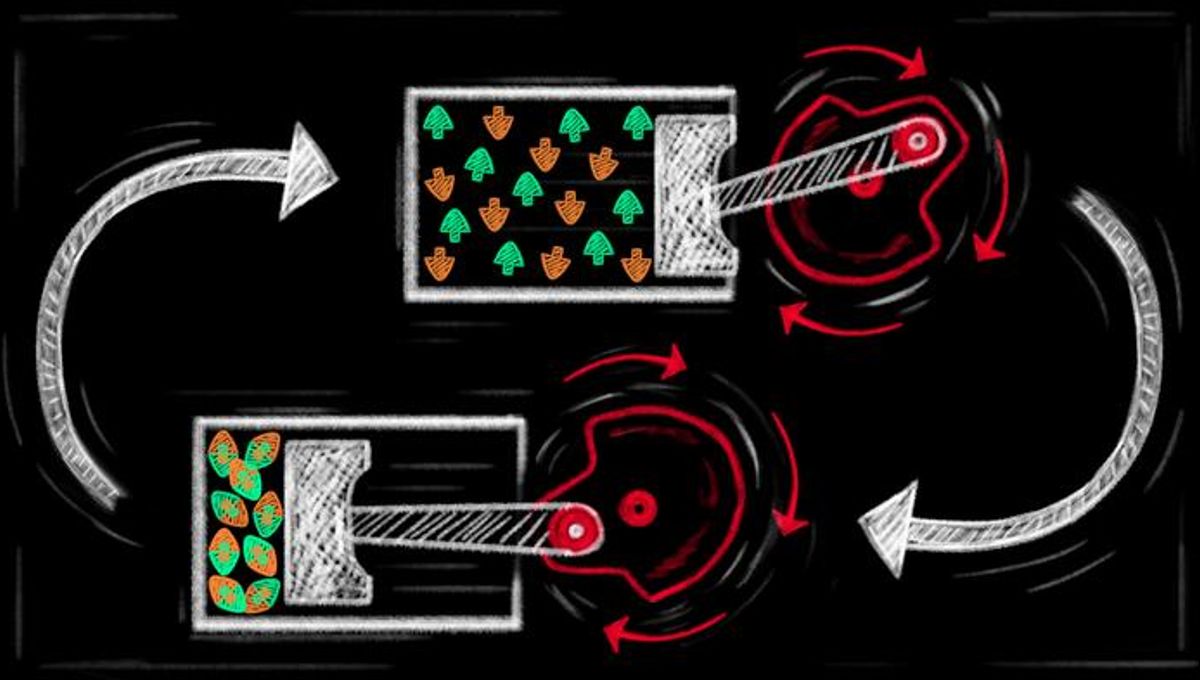
In a schematic view, an engine uses a thermodynamic change to produce work. For example, when a gas is ignited, it expands and so pushes a piston. Now, researchers have been able to develop a similar kind of engine but instead of using the relationship between temperature, pressure, and volume, the new device uses quantum mechanics.
The quantum engine employs a gas that can turn from a fermion gas to a boson gas. Fermions and bosons are a way to divide all particles into two categories. Their difference comes from a property called spin, an intrinsic angular momentum. Fermions have a fractional value (1/2, 3/2) while bosons have integer spin (0, 1, 2, …).
There is another difference that matters in the engine too: the Pauli exclusion principle. And this only applies to fermions.
The principle states that no two fermions can occupy the same quantum state. This leads fermions to be quite antisocial, pushing away from each other. On the other hand, bosons can bunch up tightly together, and if you cool them enough, the bosons turn into a Bose-Einstein condensate (BEC). In this so-called fifth state of matter, the bosons act as a single quantum mechanical entity.
In the case of the quantum engine, the researchers used extremely cold lithium atoms and an approach called Feshbach resonance. This allows for the system to be in a BEC with a small volume and a piston pushing down; as the BEC is turned into a fermion gas, its volume expands, pushing the piston away.
“To turn fermions into bosons, you can take two fermions and combine them into a molecule. This new molecule is a boson. Breaking it up allows us to retrieve the fermions again. By doing this cyclically, we can power the engine without using heat,” co-author Thomas Busch, leader of the Quantum Systems Unit at the Okinawa Institute of Science and Technology, said in a statement.
Collaborators in Germany actually built an experimental setup to see if it was possible to construct such an engine. And turns out, you can totally do that – their device reached an efficiency of 25 percent. It might not be an incredible number, but it is not incredibly far from the average car engine that might push 40 percent. Efficiency might be pushed higher in future prototypes.
“While these systems can be highly efficient, we have only done a proof-of-concept together with our experimental collaborators,” explained co-author Keerthy Menon. “There are still many challenges in building a useful quantum engine.”
Don’t expect a car with a quantum engine anytime soon, unfortunately. The system needs to be kept under very cold temperatures, and that requires a lot of energy. The researchers have their work cut out for them as they explore how to improve and consider potential applications of such a technology.
The study is published in the journal Nature.
Source Link: The First Quantum Engine Is Here And It Could Power A Revolution